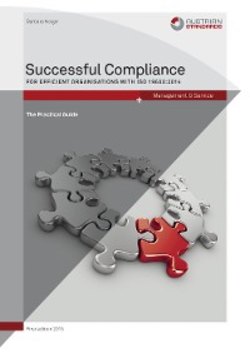Читать книгу Successful Compliance - Barbara Neiger - Страница 9
1BASIC PRINCIPLES AND GENERAL FRAMEWORK
ОглавлениеThe basic principles and general framework for a compliance management system (CMS) in accordance with ISO 19600 are presented in six chapters. First of all, the meaning of the term ‘compliance’ in the context of this practical commentary must be clarified: the fulfilment of obligations which are binding to an organisation due to mandatory regulations and obligations that have been voluntarily entered into by the organisation. Chapter 1.2 describes the legal framework for compliance in organisations based on national and international regulations on the (criminal) responsibility of organisations for non-compliant actions on the part of their employees. The obligation of management to set up a CMS that is tailored to the organisation’s individual situation is based on its general duty to perform due diligence as a responsible business man. As outlined in chapter 1.3, a CMS, as a strategic management tool, should utilise a planned approach to ensure that obligations relevant to the organisation are complied with in the conduct of activities. The avoidance of compliance violations or mitigation of their negative impact supports the achievement of an organisation’s objectives. The definition of CMS in respect of corporate governance and other management tools such as internal control systems (ICS) and risk management systems (RMS) is then discussed in chapter 1.4. Chapter 1.5 provides an overview of the historical roots of management systems and their development in the context of the International Organisation for Standardisation (ISO). Finally, chapter 1.6 discusses the importance of external ratings in general and the certification of a CMS in particular. To conclude, a brief description is given of requirements for the certification of management systems.
